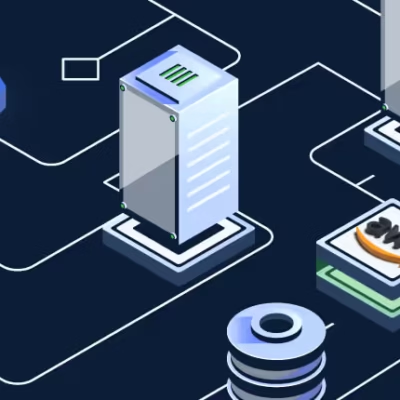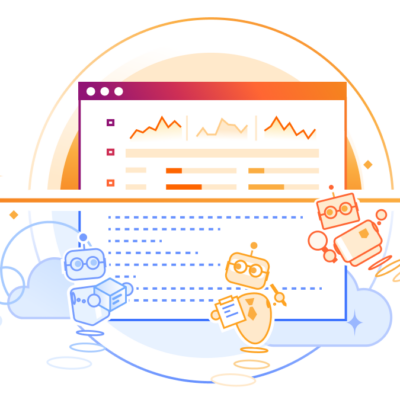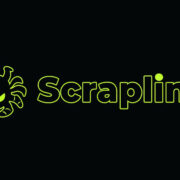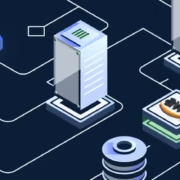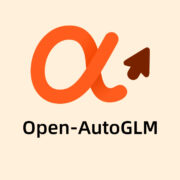C and C++ power operating systems, games, embedded devices, and high-performance apps. This guide lists short, practical online courses that teach core syntax, memory, and object-oriented design, the exact skills employers test in interviews and use on the job.
Pick a compact course to build hands-on experience, then follow it with a project to show you can apply what you learned.
How We Chose These Courses
- Short, practical formats that produce portfolio work quickly.
- Project- or exercise-driven content (real code, not slides).
- Credible providers with verifiable course details and certificates.
- Fast completion time or clear time estimates so learners can plan.
- Helpful for immediate goals: interview prep, embedded work, or system-level coding.
Top 10 C & C++ Courses to Strengthen Your Programming Logic and Systems Skills
1) Learn C Programming from Scratch — Great Learning Academy Pro
Duration: 10 hours | Mode: Online (self-paced)
A compact beginner C programming course that covers C syntax, control flow, functions, pointers, and file I/O. Hands-on mini projects and exercises help you move quickly from theory to readable, testable C code. Ideal first step before tackling data structures or systems topics.
Key Features:
- Concise curriculum: variables, loops, functions, pointers, file handling.
- 2 hands-on mini-projects to apply and showcase skills.
- Self-paced with short video lessons and practice exercises.
- Certificate of completion from Great Learning Academy Premium.
- Practical emphasis on writing clear, efficient C programs.
Best for: Absolute beginners who want a short, project-backed intro to C.
2) Learn C Programming — Great Learning Academy Pro (Beginner → Advanced path)
Duration: ~8 hours (total path estimate) | Mode: Online (self-paced)
This C++ programming course is an End-to-end C pathway that scales from fundamentals to memory management and structured programming. Multiple practice exercises reinforce each topic so you can move from simple programs to robust C code.
Key Features:
- Covers pointers, dynamic memory, structures, and file I/O.
- Multiple guided coding challenges and progressive assessments.
- Certificate of completion to validate learning.
- Updated examples targeted at industry and interview scenarios.
- Short, efficient format focused on practical mastery.
Best for: Learners who want a fast but thorough C skill upgrade toward interview readiness.
3) C for Everyone: Programming Fundamentals — Coursera (University track)
Duration: ~5 weeks (≈25 hours suggested) | Mode: Online, self-paced (Coursera)
Modular, instructor-led style course that teaches C basics, pointers, and program structure with graded assignments and peer discussion. Designed for steady, weekly progress and solid foundational problem-solving.
Key Features:
- Auto-graded coding tasks and instructor checkpoints.
- Strong focus on pointers, memory model, and modular code.
- Small projects and file I/O exercises.
- Peer forum support and quota-driven weekly pace.
Best for: Learners who prefer a paced, guided course with a credible platform backing.
4) C Programming Language Fundamentals — Pluralsight
Duration: 1 hour 26 minutes (runtime) | Mode: Online (Pluralsight subscription)
A short, binge-able refresher that zeroes in on the essentials of C and memory fundamentals. Great as a warm-up before interviews or project work.
Key Features:
- Rapid overview of syntax, data types, and pointers.
- Memory layout and function-level examples.
- Hands-on demos you can run locally.
- Compact format for quick knowledge refresh.
Best for: Experienced devs who need a fast C refresher or interview warmup.
5) Learn C++ — Codecademy
Duration: ~11 hours (platform estimate) | Mode: Online, interactive (browser)
Interactive browser-based track introducing C++ syntax, object-oriented programming, and small projects. Instant feedback and an in-browser editor let you practice without local setup.
Key Features:
- Interactive editor with instant feedback and quizzes.
- Covers classes, constructors, inheritance, and basic STL use.
- Mini projects to add to your portfolio.
- Progress tracking and achievement badges.
Best for: Beginners who prefer guided, hands-on practice in the browser.
6) C++ (Nanodegree / Project Path) — Udacity
Duration: ~62 hours | Mode: Online, project-driven with mentors
Deep, project-focused program covering C++ fundamentals, memory management, and performance tuning. Includes multiple real projects, mentor feedback, and career resources.
Key Features:
- Several real-world projects with code reviews.
- Emphasis on performance, RAII, and low-level programming patterns.
- Mentor support and project grading.
- Career guidance and portfolio-ready artifacts.
Best for: Developers targeting performance-critical systems, game engines, or embedded work.
7) C Programming for Beginners — Udemy
Duration: ~28.5 hours (course runtime) | Mode: Online, self-paced (Udemy)
Full-length Udemy course teaching C from setup through pointers, arrays, and file handling. Lots of practice exercises, downloadable resources, and lifetime access for ongoing review.
Key Features:
- Extensive lecture content with practical labs and quizzes.
- Lifetime access and downloadable code samples.
- Active Q\&A support from instructor(s).
- Multiple mini-projects for portfolio building.
Best for: Self-paced learners who want a thorough, single-instructor course with lots of exercises.
8) C Language — Basic to Advance — LearnVern
Duration: 22+ hours (video content) | Mode: Online video lessons (LearnVern)
Free, bilingual (Hindi & English) video course that covers C from basics to advanced topics with downloadable materials and exercises—good value for learners preferring video lectures in regional languages.
Key Features:
- Full video curriculum plus quizzes and downloadable PDFs.
- Bilingual explanations and local-language support.
- Practical examples and real program walkthroughs.
- Free certificate option and lifetime access.
Best for: Learners in India who prefer video instruction and native-language support.
9) Fundamentals of Data Structures in C — Simplilearn (SkillUp)
Duration: ~10 hours | Mode: Online, self-paced (SkillUp / Simplilearn)
A focused short course that teaches arrays, linked lists, stacks and queues implemented in C, practical and interview-oriented. Ideal to bridge C basics and algorithmic applications.
Key Features:
- Data-structure implementations in C with practice problems.
- Short assessments and quick checkpoints.
- Certificate on completion through SkillUp.
- Interview-focused exercises and examples.
Best for: Engineers preparing for coding interviews who want C-based data structure practice.
10) Master the C Programming Language — Udemy (Crash Course)
Duration: ~8 hours 29 minutes | Mode: Online, self-paced (Udemy)
Short, practical crash course that teaches core C concepts and includes hands-on labs ideal for weekend sprints or a quick knowledge boost before project work.
Key Features:
- Compact, project-centric lessons and exercises.
- Downloadable code samples and quick labs.
- Good for quick ramp-ups and refreshers.
- Certificate on completion for resume/LinkedIn.
Best for: Learners who want a concise, hands-on C intro without a long time commitment.
Conclusion
Start with a short, hands-on course to get working code in your portfolio, then deepen your skills with a project or a longer program. Consider free courses with certificates to prototype quickly and validate your learning.
Focus on writing, testing, and documenting small C/C++ projects; that combo turns weekend learning into job-ready skills.


